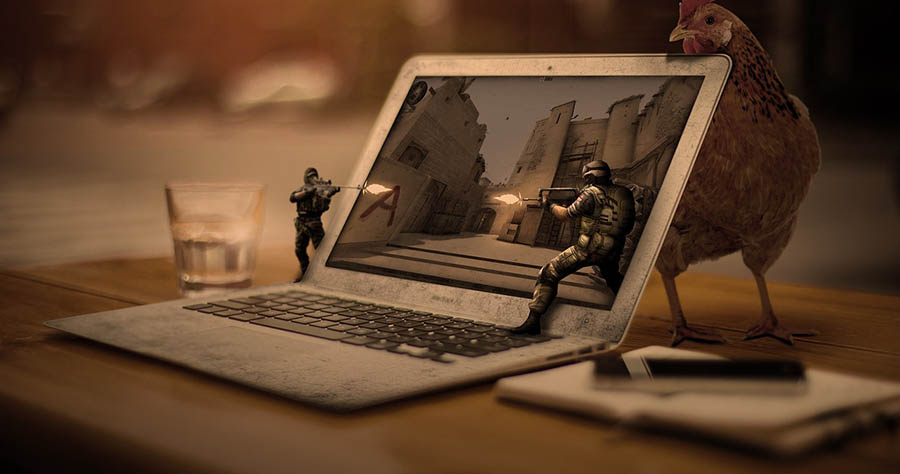‘Modding’ is a slang term for modifying game data. Since the launch of arcade games, modding has been common practice. It’s had an interesting history, pivoting from something that was largely discouraged to something that many developers now nurture. This post delves into this brief history.
Missile Command
As early as 1981, gamers were tampering with video games. Documented in the Netflix series High Score is a story of a group of MIT students who were running an on-campus games arcade. Upon seeing that players were easily beating the game Missile Command and losing interest, the students modified the game to make it harder. But they didn’t stop there – they then proceeded to sell software enhancement kits to other owners of the arcade game.
Atari found out about what was going on and sued the students for copyright infringement (just as they were working on modding Pacman). However, the case never went to court, and was settled on the grounds that the students would have to ask permission from Atari in the future – and essentially mod games on Atari’s behalf.
Castle Wolfenstein
PC game mods as we know them today began with Castle Wolfenstein in the 1980s. A gamer named Silas Warner replaced the Nazis in the game with Smurfs to create ‘Castle Smurfenstein’. This is probably the first example of a modder creating a new game out of another game purely for artistic purposes.
Castle Smurfenstein was distributed among gamers, quickly inspiring a community of modders. Gamers started to look at other PC games and mod them. In 1992, a sequel titled Wolfenstein 3D was released that became a popular target for mods. Characters and new levels were generated and shared, which helped the game to grow in popularity.
Doom
The developers of Wolfenstein 3D, id Software LLC, realised that mods were adding to the enjoyment and longevity of the game. When developing their next game (the highly successful Doom), they decided to embrace modding. Gamers would no longer have to break into the code to mod the game – Doom instead provided separate WAD files that allowed players to change any part of the game’s design.
This led to an explosion in user-generated levels that made Doom very popular. The game remained popular throughout the 90s and continues to have a cult following to this day. Other games would follow the example of Doom including Duke Nukem and Half Life.

Counter Strike
Counter Strike is one of the first major game franchises to begin life as a mod of another game. It was originally distributed as a mod of Half Life. The developers of Half Life, Valve, were so impressed by the mod that they hired its creators and turned it into an official game of its own. It would go on to spawn a series of popular sequels.
Other games that have started as mods include Team Fortress, Dota 2, DayZ, Garry’s Mod and Killing Floor.
The Elder Scrolls & Fallout
Bethesda, the developers behind The Elder Scrolls and Fallout games, have also embraced the modding community. In fact, Skyrim may just be the most modded game ever.
The company caused a stir when it first introduced ‘Creation Club’ – which operated pretty much as a store for mods. Selling mods was already popular before this, but it was done privately, and most mods were still shared without payment. The idea of a marketplace incentivised the idea of paying creators for their mods, but also saw the beginning of developers attempting to take a cut of the profits and turn mods into another form of DLC.
Call of Duty
Call of Duty developers, Activision, have had a rocky relationship with the modding community. They have been known to take legal action against certain mods while tolerating others – showing that modding is still a controversial subject.
In multiplayer settings, modding is often disallowed. The likes of Call of Duty boosting are still permitted as they generally involve accounts that have been organically boosted to a certain level. Meanwhile, the likes of aimbots are less tolerated, as they are more of a hack than a form of assistance.
Conclusion
Game mods aren’t going away anywhere. In the future, we will likely see modding taken to new extremes, as AI pushes the boundaries of what can be achieved. We could see modded games with entire new casts of characters with their own scripts and voices all produced by one creator using AI. There is also a high likelihood the monetization of modding will become more commonplace and that developers will want more of a cut.

